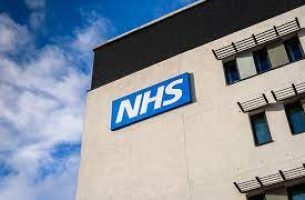Postnatal (after childbirth) care for mothers Whether you have had a vaginal birth or a caesarean section, a planned birth or an emergency birth, or delivered at home or the hospital, you may have questions about your health after having a baby. Some of the most common concerns in the post-natal period (the six weeks after having […]
Read MoreI’m pregnant: what do I do if I’m worried about my baby? If you have urgent concerns during your pregnancy, such as bleeding, pain or reduced movement, do not contact your midwife or GP. Why? They may not be on duty when you contact them and this can delay you accessing help. However, unless you […]
Read MoreWho do I do if I think I am in labour? If you think you may be in labour, do not contact your midwife or GP. And please don’t go to A&E. So what do you do? Depending on the birth plan you have made with the maternity team during your pregnancy, you may be asked to […]
Read MoreWho works on a hospital ward? There are quite a few. Here are the main ones, and what they do: Senior doctors – consultants and registrars. They make the principle medical decisions about your care. They are assisted by 2, 3, 4 and 5. The consultants are in charge and responsible for all aspects of […]
Read MoreWhat is a labour ward and who works there? A labour ward is where a woman goes in a hospital to have a baby. If you go to a labour warden/delivery suite in your pregnancy and birth, you may notice it can be a busy place with lots of different staff members. Every hospital will have […]
Read MoreHow many doctors are there in the UK? We don’t know. Why? Its hard to define the NHS. For e.g. do those who work at NICE work for the NHS? And what about locum, agency and part-time staff; or doctors registered but not working, or not working clinically? So, what do we know? In 2022, roughly […]
Read MoreHow to be a good doctor The primary role of a doctor is to make the correct diagnosis, and care for the patient. To be good at making diagnoses you need to be a good doctor. To do that you need to learn (and be good at) KRED, i.e. combine kindness, with rational and empirical thinking […]
Read MoreWhen should I see a doctor about a blister? What is a blister? Blisters are small pockets of fluid that usually form in the upper layers of skin after it’s been damaged. Blisters can develop anywhere on the body but are most common on the hands and feet. They are usually due to friction against […]
Read MoreWhat is the structure of the NHS? The NHS is the UK’s Government-funded medical service. We will describe its main services then a bit about how it works and is funded. It is led by the Department of Health and Social Care (DHSC), and its Secretary of State. Examples of NHS services include: Visiting a GP, nurse or other health […]
Read MoreHow to take a neurology history We will now describe neurology history taking. As with all medical history taking .. Listen to your patient, he is telling you the diagnosis”. Dr William Osler (1849-1919) .. and 90% of the diagnosis is in the medical history. Full stop. Careful examination is important after a careful history. Do […]
Read More


